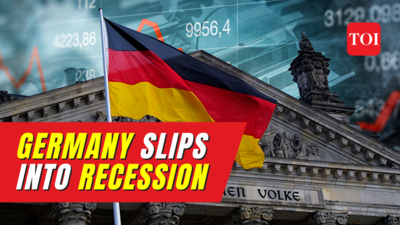 |
| "Navigating the Challenges: Germany's Economy and the Path to Recovery" |
An economic recession occurs when there is sustained negative growth in the economy. This reflects a decline in production, investment, income, and demand, which impacts employment, finances, and daily life. Germany, as one of the leading industrial nations with a strong manufacturing sector, faces various challenges contributing to its economic recession.
One of the factors that can lead to a recession is a slowdown in global trade. Germany heavily relies on exports and is the largest exporter in Europe. When international demand decreases, as seen in recent years, it can have a negative impact on the German economy. Additionally, changes in the global economic landscape, such as trade conflicts between major nations, geopolitical uncertainty, and shifts in trade policies, can also influence Germany's economic performance.
In addition to external factors, there are also internal challenges affecting the German economy. One of them is a slowdown in domestic demand. Despite relatively low unemployment rates in Germany, slow wage growth and economic uncertainty can cause consumers to reduce their spending. This affects the retail sector, housing, and other service sectors, which, in turn, impact overall economic growth.
 |
| "Navigating the Challenges: Germany's Economy and the Path to Recovery" |
Furthermore, cooperation with other countries in the European region is crucial in addressing complex economic challenges. Coordinated policies between countries can enhance economic stability and create an environment conducive to sustainable economic growth.
In facing an economic recession, it is important for Germany to not only focus on short-term recovery but also build a strong foundation for long-term growth. Investments in education, workforce training, and innovation can help create quality jobs and drive economic diversification.
The readiness of the German economy in facing globalization is a complex challenge. However, with the right steps and sound policies, Germany can overcome this recession and build a strong foundation for a more stable and prosperous future.
